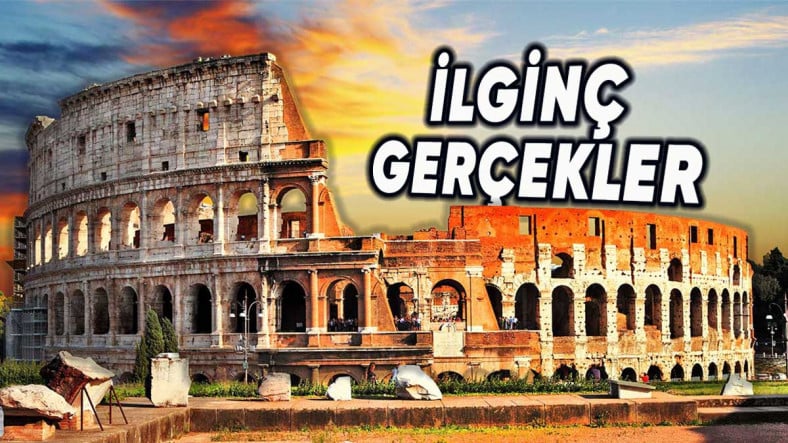In fact, there are not many people who have not heard of the Colosseum. The Colosseum, one of the most important symbols of Rome, is especially gladiator fights comes to mind.
However, this huge structure reminds us of gladiator fights. offers much more. Let’s start our journey.
Actually its name is ‘Flavianus Amphitheatre’.
During the Flavian Dynasty, Emperor Vespasian The building is given this name because it was built by . The name Colosseum comes from the Colossus Neronis statue built by Emperor Nero, located near the building.
The construction period was quite short compared to its period.
Colosseum between 70-80 AD, completed in approximately 10 years. Considering the technology of the period, it is a great success to complete a building that can accommodate 80 thousand people in such a long time. Of course 12 thousand workers working in constructionis the biggest factor in its completion in such a short time.
We only know it through gladiator fights, but…
The Colosseum hosted many other things besides this. Among these, wild animal hunting and executions There were even naval battles. The floor of the building was filled with water when naval battles were to be reenacted.
Sea battles are also included in the trailer of the Gladiator 2 movie above.
The structure is full of holes everywhere.
Because in the construction of the Colosseum, iron was used to fasten the stone blocks together. When the Colosseum fell into ruin, these iron parts were dismantled and moved to be used elsewhere. These holes we are talking about are iron. Gaps created by removing clamps.
We always remember the Colosseum with its half view because…
While the first 5 centuries were intact, the building was destroyed from the 6th century onwards. started to lose its integrity. In fact, first a church and then a cemetery were built inside. The seating areas inside have been turned into shops. However, the outer walls of the southern part of the building were destroyed by the earthquake that occurred in 1349. as a result of a major earthquake ruined.
You can also take a look at these contents:
RELATED NEWS
See What’s the Reason: Why Were Ancient Roman Toilets Designed Side by Side, Without Any Partitions in Between?
RELATED NEWS
Why Aren’t All Areas Open to Visitors in Some Historical Places, Like in Topkapı Palace? (Do They Have Something to Hide?)
RELATED NEWS
We Asked Artificial Intelligence: What Would Have Happened If the Ottoman Empire Had Never Conquered Istanbul?

